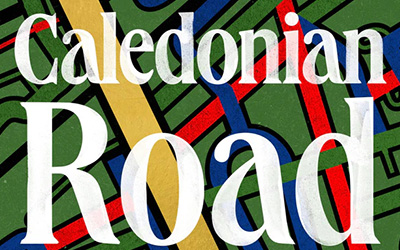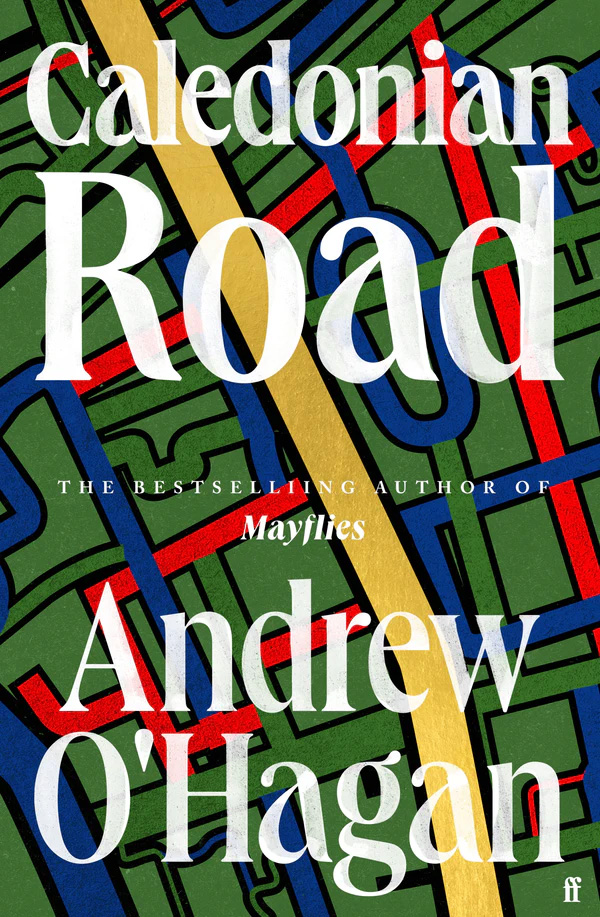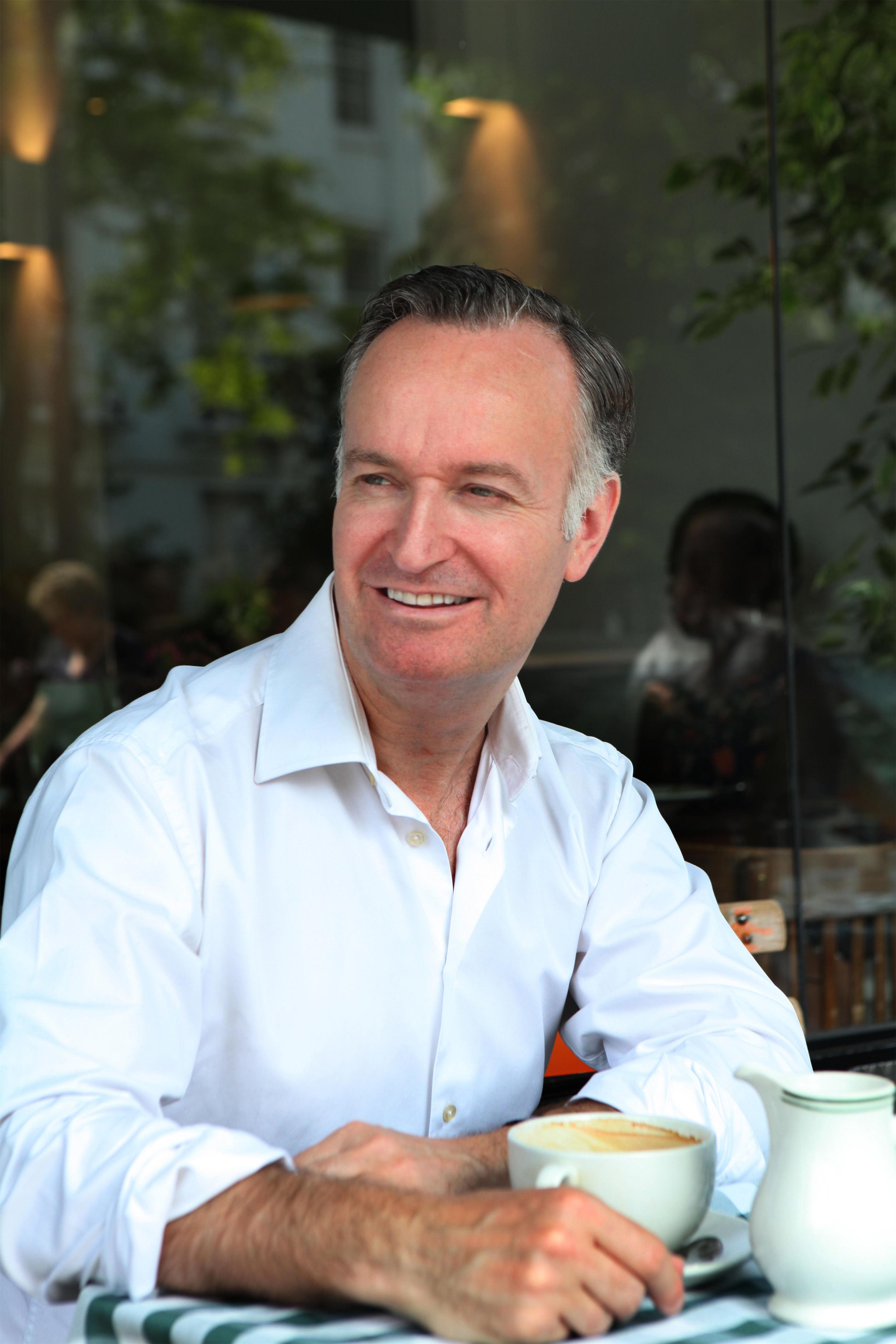
- Free Article: No
- Contents Category: Fiction
- Review Article: Yes
- Article Title: Life support
- Article Subtitle: Passionate arguments for purification
- Online Only: No
- Custom Highlight Text:
One of Caledonian Road’s primary characters, Milo Mangasha, tends to speak in political slogans, which his childhood friend identifies as ‘college talk’. Readers may recognise in Milo the rhetoric of characters in Andrew O’Hagan’s previous novel, Mayflies (2020), a popular and critical success that was subsequently adapted for television. Like Mayflies, Caledonian Road is stridently certain about its political and moral positions. It reads like a passionate argument for purification. In this fictional world, set in contemporary Britain, a person who maintains ties with corrupt and wealthy conservatives, while voicing left-wing principles and ideals, risks a ‘crack-up’. Failing the test of moral consistency turns you into a cipher, a hollow man, a danger to yourself and others.
- Featured Image (400px * 250px):

- Alt Tag (Featured Image): Shannon Burns reviews ‘Caledonian Road’ by Andrew O’Hagan
- Book 1 Title: Caledonian Road
- Book 1 Biblio: Faber, $34.99 pb, 656 pp
- Book 1 Cover Small (400 x 600):

- Book 1 Cover (800 x 1200):

- Book 1 Readings Link: https://www.readings.com.au/product/9780571381364/caledonian-road--andrew-ohagan--2024--9780571381364#rac:jokjjzr6ly9m
We meet Campbell just after he has just written a self-help book professing to address the contemporary plight of men, which is to be published anonymously. He hopes that its sales will help relieve his debts. We learn that Campbell borrowed money from an old-school friend, William Byre (one of the novel’s capitalist villains), to maintain his family’s lifestyle, and has stopped paying taxes. He uses self-soothing apps on his phone to cope with a sense of dread. From the blurb onwards, the novel signals the approaching catastrophe. O’Hagan builds tension by noting, repeatedly, that something bad is going to happen to his protagonist.
Campbell is both aware and unaware of the crisis enveloping him. In the opening pages, we learn that he sees himself as a thinker in danger of becoming thoughtless. At fifty-two, he knew himself to be a traitor to the class of his youth and a freak to his own moral understanding. You can’t live your life being celebrated for beautifully preaching what you will never practise, and this was the certainty that had begun Campbell’s trouble ... He knew that hypocrites live on by defending their position against outward reality, but that year, that season, Campbell knew that he could no longer get away with it in his own conscience.
Campbell appears to have already diagnosed his problem and partly prescribed its solution: practise what you preach. Yet just two pages later, after hearing that Byre is being investigated for corrupt business dealings, Campbell again begins to ‘wonder if his own values might be tainted’ by his friendship with the man. Campbell repeats variations of the same query about himself throughout, apparently suffering from a form of amnesia that makes him forget his own moral realisations.
O’Hagan has little interest in subtlety or ambiguity. His good guys are unmistakably decent and his bad guys are definitively terrible. Two of the novel’s decent people – Tara, a tenacious but reflective journalist, and Moira, a principled Labour MP – voice the theme of the book while discussing their own social connections to wrongdoers. Moira says: ‘We must call it out ... We can’t bend just because the offenders are in our contacts ... Because the world will never be right until these people are named.’
Caledonian Road deals with a broad range of contemporary social issues and features a large cast of characters, including a duke who thinks Hitler had some good ideas, a pernicious columnist, an activist-hacker with utopian dreams, a handsome but buffoonish actor, a Russian oligarch and his hot-headed gangster son (straight out of every action film), fashion designers, publishers, people smugglers and their victims, and a dying matriarch who lives out her days on a cruise ship. Most characters run in the same social circles or are connected to each other at a small remove.
As his crisis takes hold, Campbell develops a strong fascination for his former student, the politically assertive Milo. Campbell sees him as ‘an association’ that ‘might replenish him and force him to embrace the change that frightens him’. The only real suspense in the novel is drawn from Milo’s enigmatic interest in Campbell: why is he ‘testing’ him and what is his long game? Milo believes that Campbell ‘thinks he’s one of the good guys’, yet we know, from the earliest pages, that Campbell doesn’t think this at all – he sees himself as a hypocrite – so the insight doesn’t hold. Still, Milo clings to the idea that he is gradually revealing Campbell to himself, as does the narrator. This seems like a structural flaw.
If Campbell is guilty of maintaining connections with people who exhibit signs of corruption and brutality, Milo is his opposite: he seeks to expose corruption and wrongdoing wherever he finds it and to break ties with an immoral society. When the scale of Byre’s criminal behaviour is revealed, Campbell is sickened: ‘If feeling implicated can be experienced as a form of pain, then Campbell was in agony.’ Milo experiences no such anguish. One of his friends is implicated in a violent crime, but his relative disadvantage absolves him from responsibility in Milo’s mind.
 Andrew O'Hagan, 2023 (Christina Jansen)
Andrew O'Hagan, 2023 (Christina Jansen)
Milo’s mother succumbs to Covid during the early stages of the pandemic, isolated in a hospital bed. As she speaks her last words to her family, via FaceTime, she pulls down her oxygen mask and addresses the state of Britain ‘in her most serious voice’. She says: ‘The whole country’s on life support.’ Because she is dying, and deathly sincere, and because she has lived an unerringly decent life, we know this isn’t intended to be funny – we should not see her as a comically cartoonish symbol – but it’s a tough ask. With few exceptions, O’Hagan’s characters are props devised to hammer home political or moral proclamations.
Caledonian Road is lively and full of promise for much of the first half, where it maintains a satirical edge. The hypocrisy and self-centredness of upper-class society is a rich source of humour, and there are echoes of contemporary satires like Ruben Östlund’s The Square (2017). But Campbell is ultimately a pathetic figure with few redeeming features, and the source of his crisis and nature of his fall are unconvincing. This makes for a hollow creation.


Comments powered by CComment